
Revelation Hope – The Sounding of the Seven Trumpets
Trumpets in Old Testament Times
Revelation 8 portrays the sounding of seven trumpets, a depiction which seems to come out of the opening of the seventh seal.
Some of the wildest and most perplexing images in the Bible concern the events heralded by the seven trumpets.
As in the other visions so far, understanding the Old Testament background in the experiences of Israel is important for understanding what meaning this has now to the Christian Church.
What Part did the Blowing of Trumpets have in the Daily Life of Israel?
The use of trumpets has a rich background in the Old Testament.
Six Hebrew and two Greek words are translated as “trumpet” or “blow the trumpet.”
Of 134 uses in the Greek Old Testament, 75 are in the context of worship, 33 refer to battle situations and 10 warn that an enemy is approaching.
Most important of these references is Numbers 10:8-10.
This passage tells us trumpets were sacred instruments, whether they were used in worship or in battle.
They called on God to remember His covenant with His people.
When He heard the trumpet’s call, He would protect and defend His people in battle (see verse 9).
While the priests blew trumpets over the sacrifices of Hebrew worship, God “remembered” His people and forgave their sins (see verse 10).
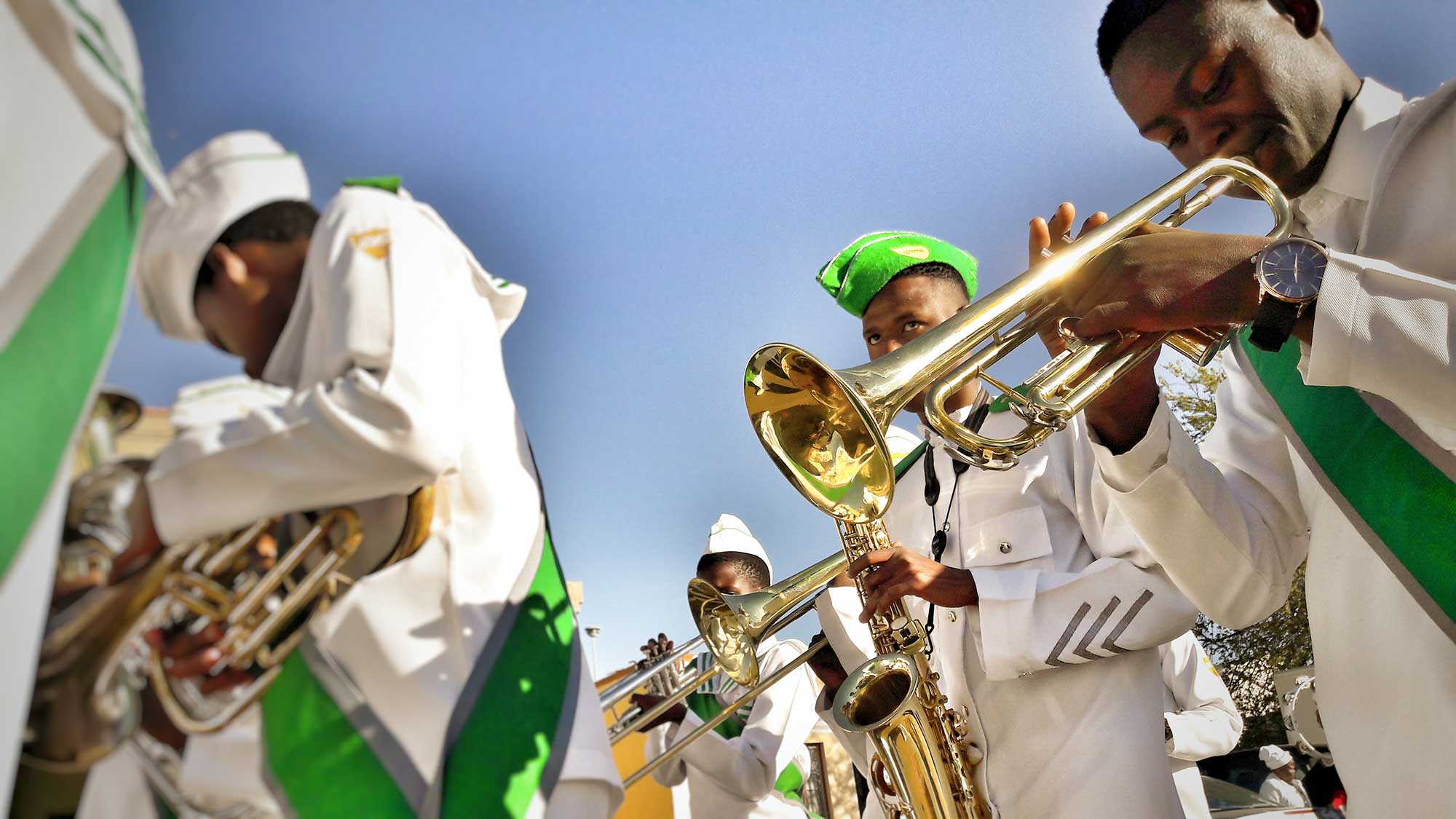
Why Seven Trumpets?
On the surface, blowing seven trumpets sounds like a litany of war and disaster.
But, at a deeper level, they portray a spiritual concept.
They symbolise God’s people calling for Him to right the wrongs on this earth.
As we go though the verses for each trumpet we will see how they represent a series of interventions God makes in response to the prayers of His people.
This is recorded in the opening of the fifth seal (Revelation 6:9-11).
The trumpets are not sounded until heaven has heard the prayers of the people (Revelation 8:2-5).
The opening of the seven seals is all about the progress of preaching the gospel.
It deals with those who accept its message and profess to be God’s people.
But some become disloyal.
They are the focus of an appeal made by God to bring them back to Him, just as He did so many times for Israel in the Old Testament.
God wants all of His people to be overcomers who share Christ’s throne.
The trumpets’ soundings are life-changing calls to repentance.
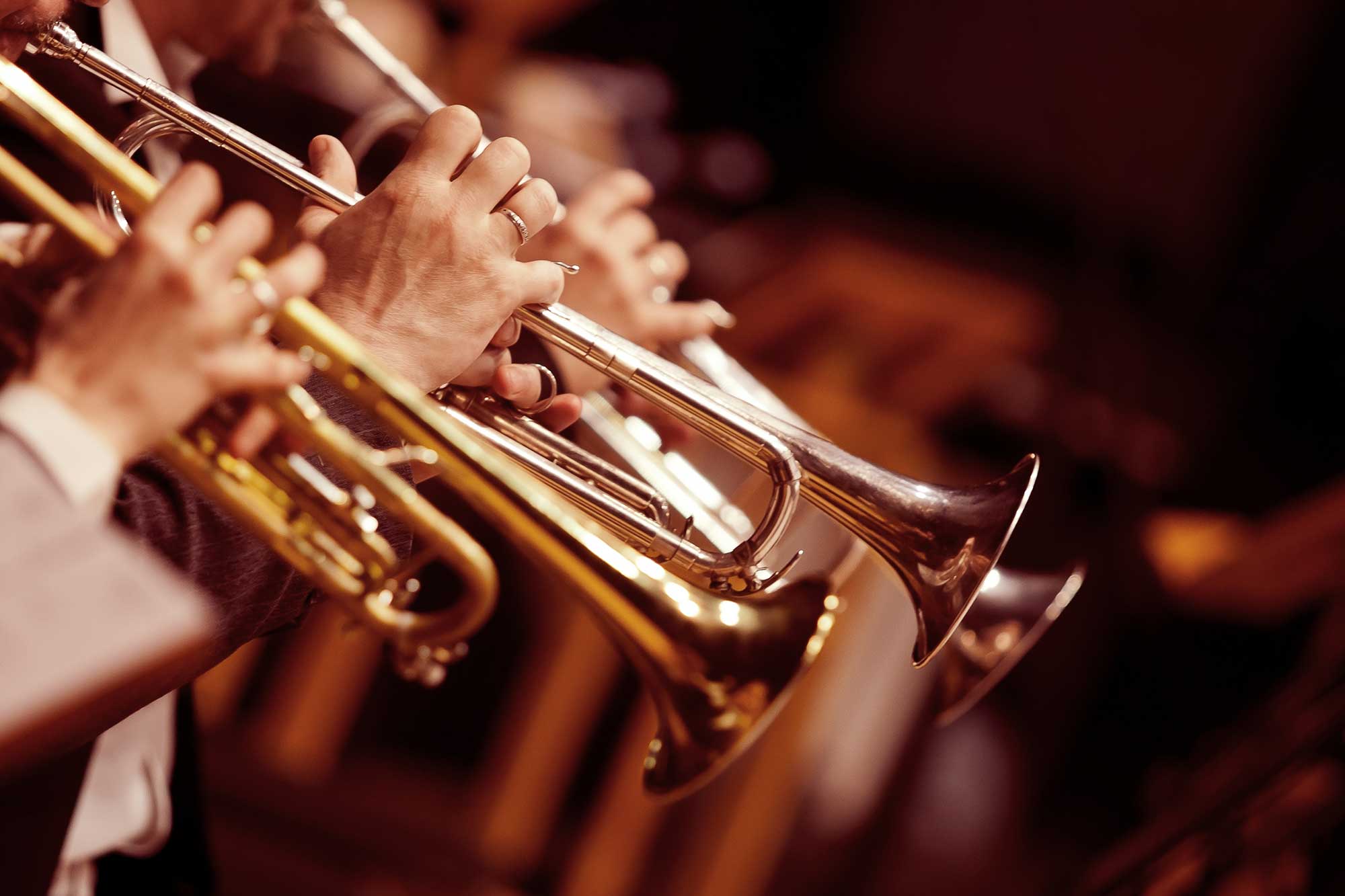
They symbolise God’s people calling for Him to right the wrongs on this earth.
In contrast to the seals, the trumpets’ soundings are directed at those who do not profess to follow Christ.
They do not have the seal of God on their foreheads (see Revelation 9:4) and are described consistently in Revelation as “those who dwell upon the earth”
(see Revelation 8:13, 11:10, 13:8, 14, and 17:2).
God has love for them as well and wants to bring them to Himself.
For those people, the trumpets are sounded as warnings that the time for repentance is running out.
They foreshadow the plagues to come in Revelation 16.
The sounding of the seventh trumpet brings us to the time when the gospel work on earth is completed (see Revelation 10:7; compare Ephesians 3:2-7).
People still have an opportunity to repent up until just before the seventh trumpet sounds, when God steps in and sets up His kingdom (see Revelation 11:13-15).
Whenever the priests sounded the trumpets, God acted.
The blowing of trumpets was a symbol of covenant prayer. When God’s people pray on the basis of His promises,
He will respond. He will deliver them from human enemies, and also from sin.

The Big Picture
Before the opening of the seventh seal, Revelation 7 tells us that God’s people will have a seal of protection.
They are pictured as 144,000 heavenly warriors gathered ready for the last great battle.
Later they are shown again in front of the throne celebrating the victory.
They are described as a great multitude that no-one can number from every nation, tongue and people.
.In the fifth seal we saw the constant cry of God’s people who are suffering.
They are asking God to step in and punish those who are persecuting them.
The trumpets’ soundings represent God’s intervention in history in answer to the cry of His people.
The sounds fall on the inhabitants of the earth in answer to the prayers of the souls under the altar.
When do the Seven Trumpets Begin?
The clue to when the trumpets begin sounding is found in Revelation 8:2-5.
It speaks in the language of the daily sacrifice in the Old Testament sanctuary or Temple.
The service itself occurred twice daily at 9am at 3pm.
The ending of the day’s rituals was announced by the blowing of the trumpets.
The body of a lamb was placed on the altar of burnt offering.
The blood was poured at the base the altar.
Then the priest took the golden on the golden altar in the Holy Place.
During this ceremony the people in the court waited quietly in prayer.
At the moment the priest came out to bless the people, seven priests blew their trumpets, marking the end of the daily sacrifice ceremony.
Clearly, the blowing of the seven trumpets is a flow-on from the death of the Lamb in Revelation 5.
It starts at the death of Jesus on the cross.
The blowing of the trumpets shows the ultimate sacrifice has been made once and for all.
For now there is an offer of grace and judgment—grace for those who believe, but for those who reject the offer, judgment has already begun.

Why are the Trumpets Sounding?
A good place to start is the call of the fifth seal for judgment on the “inhabitants of the earth” (see Revelation 6:9, 10).
In Revelation 8:3-5, we witness that the prayers of the saints—God’s people—are being heard.
The trumpets sounding are a series of judgments in response to the prayers of God’s people, described as successive “woes” in verse 13.
These successive judgments in history occur when God seeks to bring the inhabitants of the earth to Himself.
Revelation 8:6 shows that the prayers cause the unleashing of the trumpets as judgments on those who have been persecuting God’s people.
But remember, these judgments are designed to arouse those who are not God’s people and win them to Him.
This is still possible right up to almost the end (see Revelation 11:13).
As we examine the message of the trumpets, we will see that they unfold from the time of the death of Jesus on Calvary to when He comes again.
They are saying to us: “Be of good courage. God has already been working in history even though it may not have always been recognised by His people.”
The sounding of the trumpets continues from the cross to Jesus’ second coming,
from the time of the end of the daily sacrifice until the seventh trumpet sounds and God takes up His kingdom.
(see Revelation 8:1-5 & 11:15).
God is a God who delights in mercy.
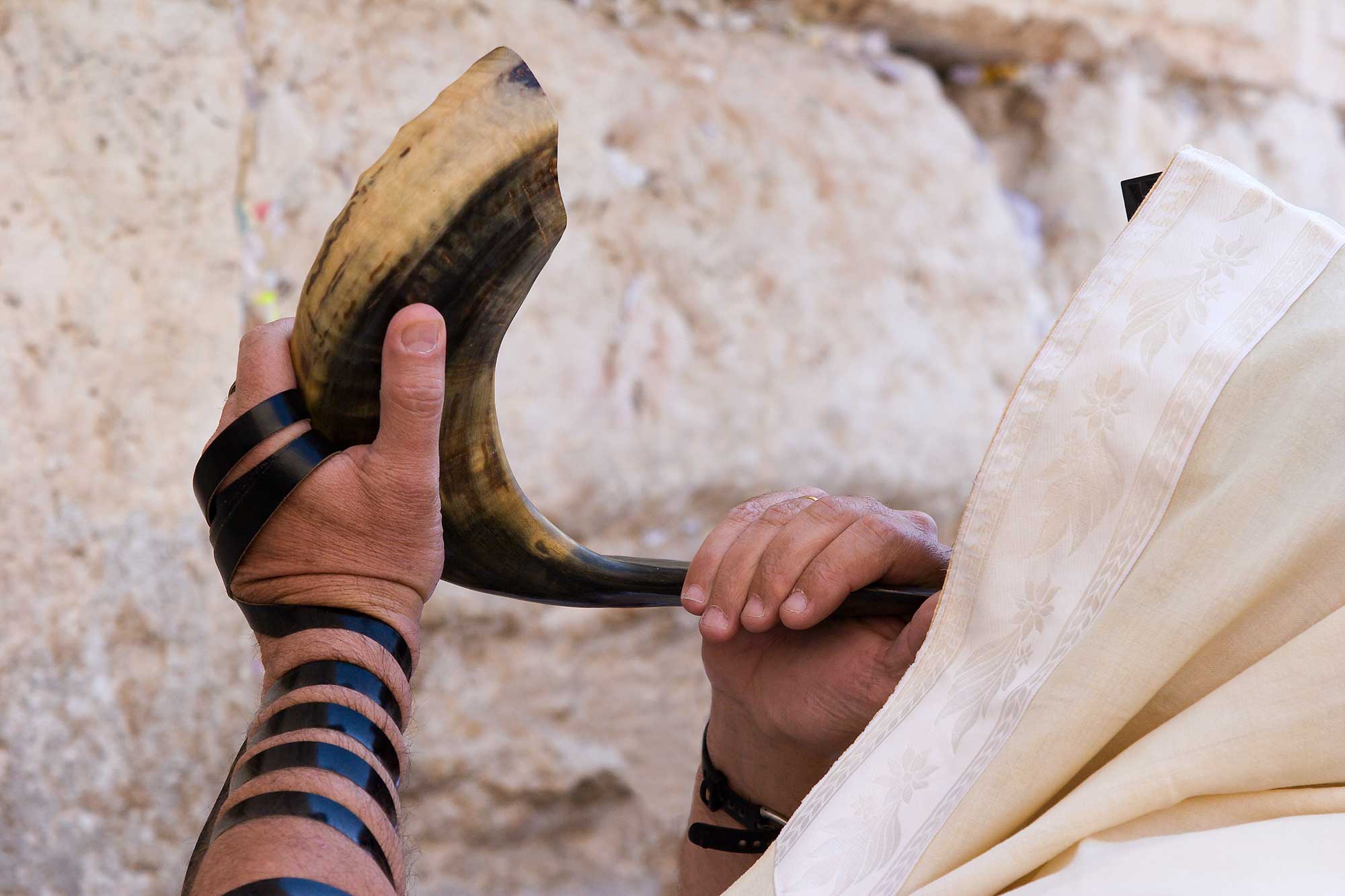
The Sounding of the Trumpets
The wording of the sounding of the trumpets seems to suggest that God is undoing His creation in preparation for a new creation. They move through the creation story of Genesis in reverse.
As shown already, trumpets played a significant role in the way God related to
His people in biblical times. They were used at important times in Israel’s history, for example, the giving of the law at Sinai and the destruction of Jericho.
In the New Testament, trumpets are mentioned as being sounded when Christ gathers up His people (see Matthew 24:31; 1 Corinthians 15:51-53; 1 Thessalonians 4:16, 17)
Basically, the trumpets herald a time when God intervenes in response to the prayers of His people, which is how they are used in Revelation 8 and 9.
The trumpets sound against those who do not have the seal of God, elsewhere described as “those who dwell on earth” (see Revelation 9:4).
The sounding of the trumpets are in response to those forces in history that have persecuted and harmed God’s people.
While there is still opportunity to repent, sadly, most don’t (see Revelation 9:20, 21).
The trumpets are a warning of the plagues to come: time is running out and the door of opportunity will soon be closed.
The trumpets are judgments of God to awaken people to their need of Jesus before it is too late.
During the sounding of the trumpets, the preaching of the gospel is still going on. For example:
In Revelation 10:11, John—personifying God’s people—is told to preach again.
Revelation 14:7 shows God’s people still preaching the everlasting gospel during this crisis time and calling for people to turn to God and give Him glory.
Revelation 11:13 declares that some who are survivors are terrified and respond by giving God glory.
We must not forget that the gospel lies at the heart of all that is going on.
We must never lose sight of the fact that this book is the Revelation of Jesus Christ.
There have been some wild ideas floating around that are not in harmony with the main intent of this book. If we are on track, we should see the gospel in these trumpets.
So let us now begin to decipher what the trumpets’ soundings tell us.

What do the Trumpets Sounding Mean to us?
The scene in Revelation 8:2-6 is awesome.
John is using the language of the sanctuary on earth. The daily sacrifice has been offered; the blood has been shed on the altar. Now the people wait in silence, praying as they await the return of the priest from the Holy Place within the tent.
In verse 1, all heaven is silent. They are listening to the prayers of God’s people.
Do our prayers matter? Have you ever sighed and cried before God because of some injustice that has been done to you? Do you wonder if your prayers have gone beyond the ceiling?
But notice how the scene changes in verse 5.
The language comes from Ezekiel 10:1, where an angel takes coals of fire from between the cherubim and scatters them over Jerusalem as a symbol of divine judgment on the wicked city.
This opening scene is like a backdrop for all the trumpets. It remains in view throughout the vision by constant references back to this
scene and the fire.
Verse 6 states that the seven angels prepare to sound the trumpets. Because of the prayers of God’s people, judgments will come upon the inhabitants of the earth. God acts in our lives and in history, but many of us do not realise it.
Two messages for God’s people come out in the sounding of the trumpets from Revelation 8:6 to 9:21:
- The trumpets bring a message of comfort to God’s people. God is, and has been, dealing with oppressive powers, even while we may not see it. God continues to deal with the powers that have been hurting us. No matter how bad things are in this world, God is still in control.
- The trumpets seem to show history in advance. History is not aimless; it has a purpose and is moving toward a climax.
All heaven is interested in what we pray.
As we pray, our prayers are mingled with incense which represents Christ’s righteousness.
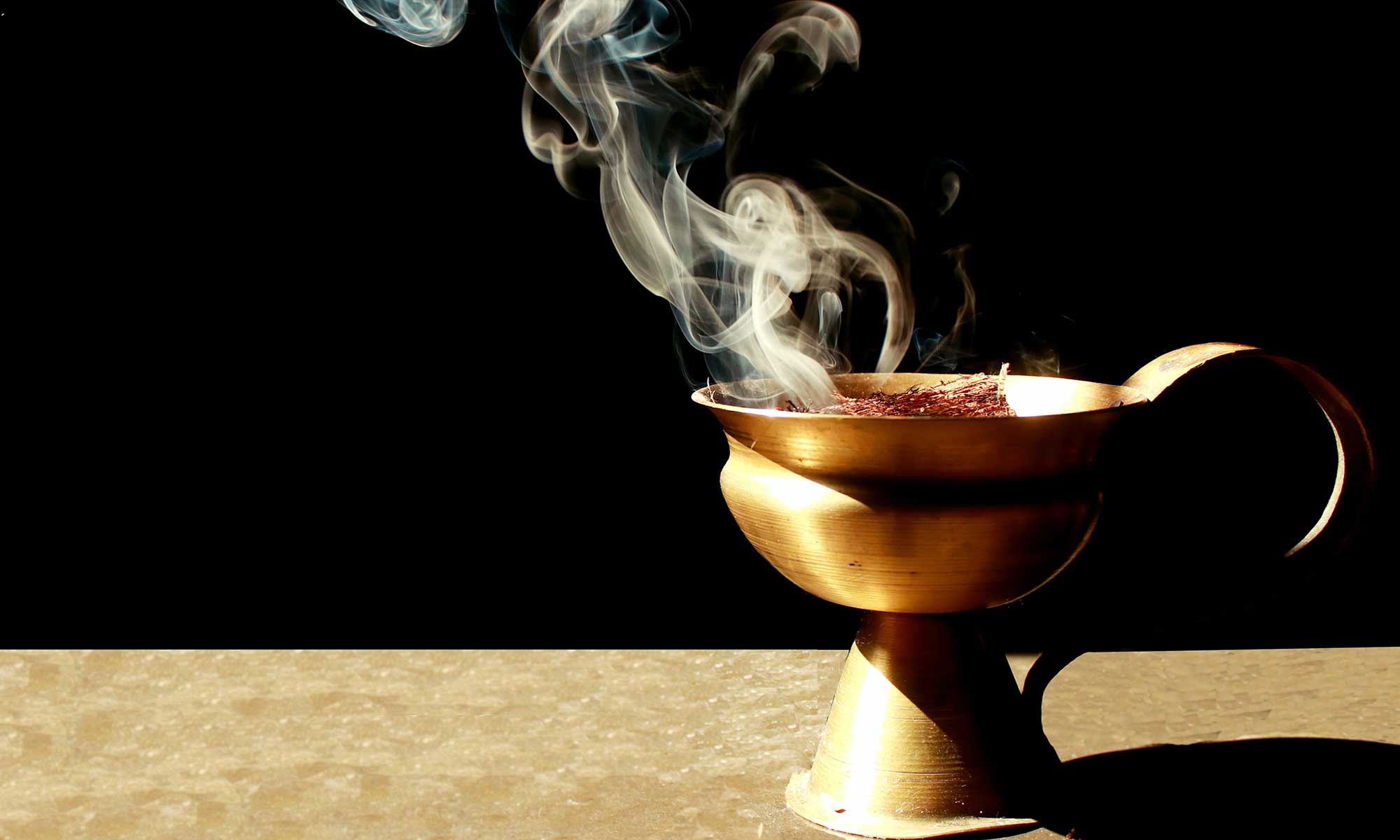
The First Trumpet
Read Revelation 8:7
Hail and fire mixed with blood is hurled upon the earth.
One-third of the earth, one-third of the trees and all the green grass is burnt up.
This trumpet uses Old Testament language to describe the enemies of God’s people facing the consequences of their actions.
What we read here echoes the plagues brought upon the Egyptians, such as water turning to blood and great darkness.
Hail and fire mixed with blood were used consistently by God against the enemies of His people in the Old Testament (see, for example, Ezekiel 38:22, 23).
Hail mixed with fire was one of the plagues on the Egyptians
(see Exodus 9:23-25).
But God also uses fire or hail against a backsliding Israel (see Jeremiah 21:12-14 and Isaiah 30:30).
God’s judgments will fall on His people if they continue to rebel against Him.
Trees and green grass often symbolised Israel when they were faithful to the covenant (see Isaiah 44:2-4) , whereas a dry tree described Israel when they were unfaithful.
But only one-third is affected.
In the prophecies of Ezekiel and Zechariah, judgments against apostate Israel are described as plagues affecting one-third of the nation (see Ezekiel 5:12, 13; Zechariah 13:8, 9) .
When Babylon falls its kingdom is divided into three (see Revelation 16:19) .
InRevelation 12:4, the tail of the dragon— representing Satan—sweeps away one-third of the stars of heaven.
This is another way of saying they had left the ranks of God and were now under the influence of Satan.
The first four trumpets are partial in their effect; the last three are far more severe.
Notice how Jesus took up this symbolism when speaking to the Jews.
InLuke 23:28- 31, He is saying in effect: “Look at what is happening to me and I am faithful to God. Imagine what will happen to this nation that is unfaithful to God.”
Jesus was predicting the destruction of Jerusalem in 70 AD.
Symbolically, Jesus is the green tree and those who reject him are the dry trees.
Judgment falls on those “dry trees” who take themselves out from under God’s 6 protection.
While many Jews accepted Christ and remained under the protection of the blessings of the covenant, most did not, putting themselves outside the covenantal promises.
It would seem those who did not accept Him for the most part were either too preoccupied with other things or adopted the prejudices of others.
Therefore, the judgment of the first trumpet would be on those from “inside the house” who rejected Jesus.
Jesus grew up and ministered in a religious community; He was received by many people, including many priests.
However, Jewish leadership and many of their followers rejected Him.
So the judgment falls on those who rejected Jesus in Jerusalem, Judea and the surrounding areas.
Judgment began at the house of God.
The first trumpet represents a decisive event of judgment in history:
the Romans came and sacked Jerusalem in 70 AD. Those who rejected Jesus had become dry trees.
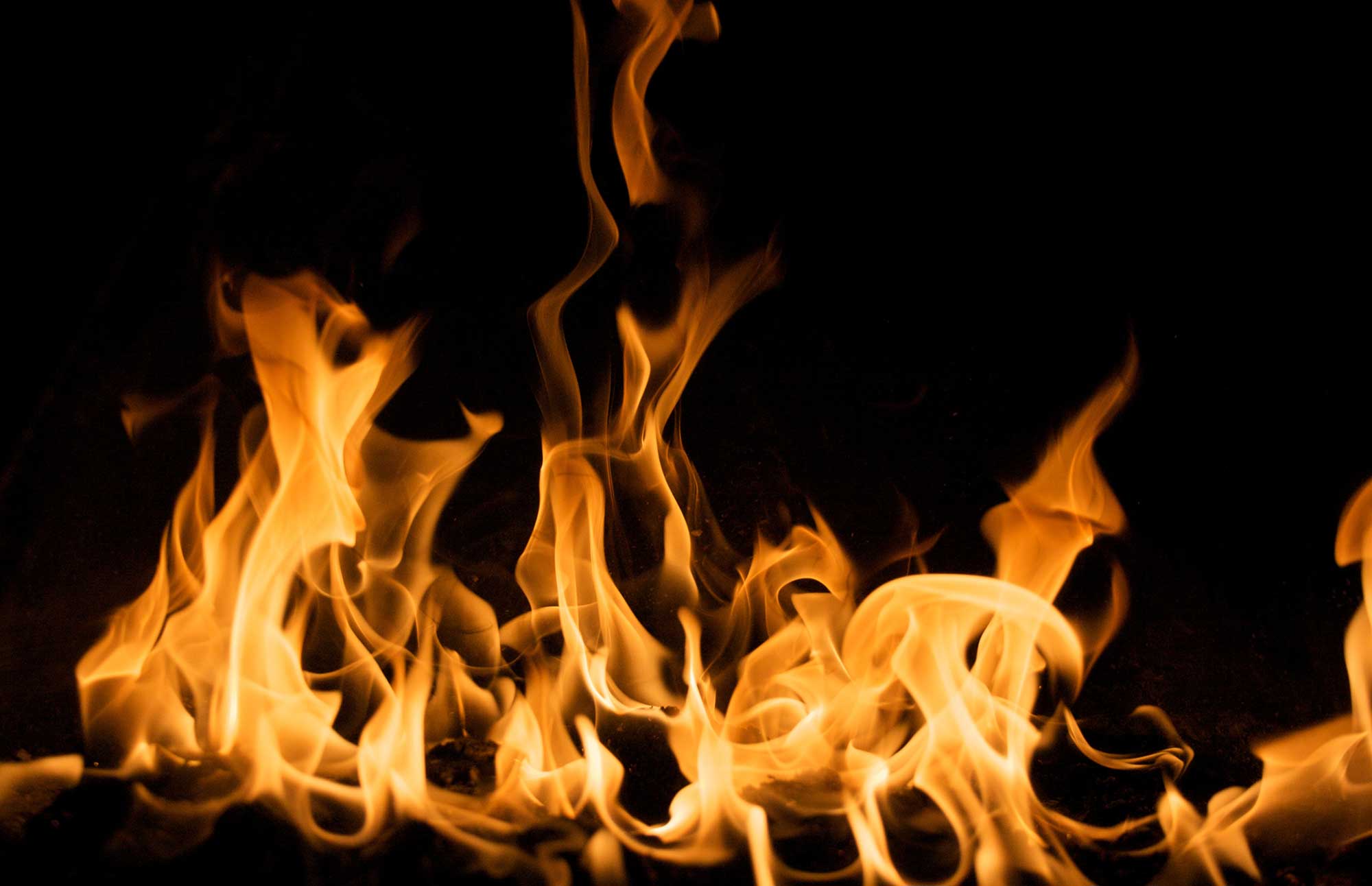
The Second Trumpet
Read Revelation 8:8, 9
A huge mountain, all ablaze, is thrown into the sea and one-third of the water turns to blood.
One-third of the living creatures in the sea die and one-third of the ships are destroyed.
In the book of Daniel, God’s kingdom is described as a great mountain (see Daniel 2:35, 44, 45).
A mountain in the Old Testament often represents a kingdom or empire under judgment from God.
Also, Babylon was seen as a counterfeit of God’s kingdom.
In this part of Revelation 8, we find language from the Old Testament prophets when they describe the fall of Babylon, the enemies of God’s people.
The Euphrates river, and idols of gold and silver, are mentioned in the fall of Babylon.
Here we have an allusion to the judgment on ancient Babylon as found in Jeremiah 51:24 25.
It is pictured as sinking into the sea in verse 42. And, in verses 63, 64, Babylon is described as being tied to a stone and cast into the Euphrates river, to sink and rise no more.
This same language is used by John in Revelation 18:21 to describe the fall of spiritual Babylon at the end-time.
Therefore, we have good reason to see the judgments of God in this trumpet as the fall of the Roman Empire.
Both Rome and Babylon had destroyed the Jerusalem temple.
Both Peter and John used the word “Babylon” to talk of Rome (see 1 Peter 5:13; Revelation 17 and 18).
Obviously, early Christians saw in Rome another Babylon.
They could easily identify the burning mountain as being the fall of Rome, an event still future at the time John wrote the Book of Revelation.
From the point of view of those who first read Revelation, the Roman Empire must have seemed invincible.
But the vision assures the prophet that God marks the activities of oppressors on this earth, and He acts at the proper time.
Like those Jews who rejected Christ, Rome had shown hostility toward Christ and His people and so it reaped the judgments of God in the second trumpet.
When we read in Revelation 8:8 of the sea turning into blood, living creatures in the sea dying and ships destroyed from the mountain falling into the sea, this sounds familiar.
During the plagues on Egypt, the waters turned into blood and fish were destroyed.
Later in Revelation 18:17-21, we read how ships are linked to human pride and the fall of Babylon. Again, the concept of one third is used to show that the kingdom of Satan is being affected by the judgments of God.
The first two trumpet judgments fall upon those who had a part in crucifixion of Christ— the Jews and the Romans.
They had also persecuted His followers.
These judgments came about as a result of the prayers of God’s people.
The first two trumpet judgments fall upon those who had a part in crucifixion of Christ— the Jews and the Romans. They had also persecuted His followers.
These judgments came about as a result of the prayers of God’s people..
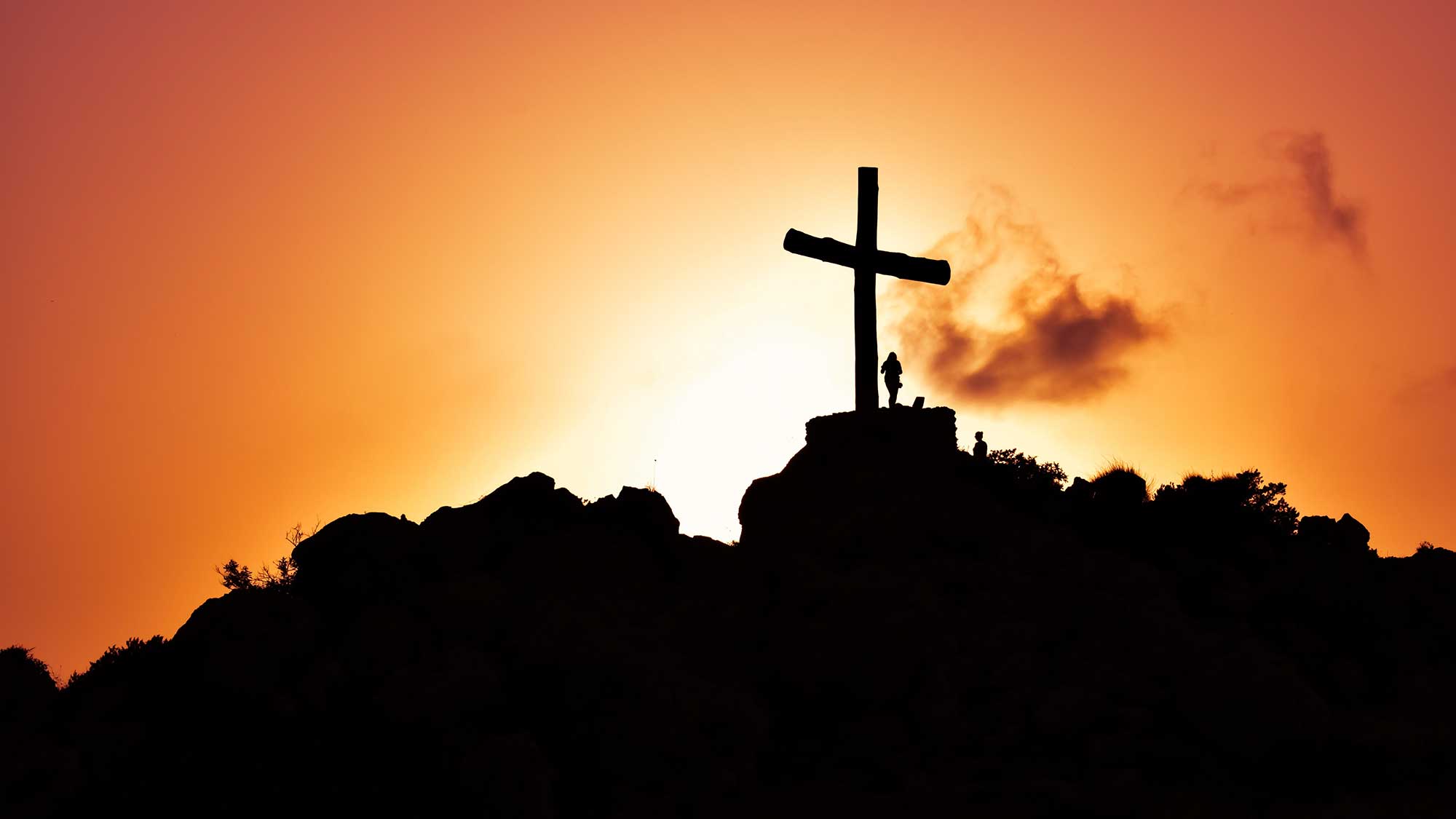
The Third Trumpet
Read Revelation 8:10, 11
A great blazing star called Wormwood falls from the sky on the rivers and springs of water.
One-third of the waters turn bitter and many people die from the bitter waters.
Stars are often used in the Bible to talk of angels.
The same is true of Revelation (see Revelation 1:20, 12:4 and 9).
A great falling star reminds us of the fall of Satan as recorded in
Isaiah 14:12-15, which describes him as a “star of the morning” falling from heaven. Revelation 12:7-9 confirms this by saying Satan was cast out of heaven to this world.
Rivers and springs symbolise spiritual nourishment and refreshment. For example, in John 7:37-39, Jesus used words familiar to His hearers, referencing Psalm 1:3, which describes a tree planted by streams of water.”
But now the waters become bitter.
“Wormwood” is a name for a group of herbs noted for bitterness.
They are not really poisonous; yet poisonous effects were often associated with it.
In the Old Testament, when Israel turned their backs on God and the covenant, they were pictured as being given wormwood to eat and poisoned water to drink (see Jeremiah 15 9:15; 23:15).
In Deuteronomy 29:16-18, bitterness is used as a symbol for apostasy, rejecting truth for a false doctrine.
False teaching affects people.
It steals their assurance with God because the water of truth has been poisoned: that which promised life instead becomes the source of death.
Bitter water cannot sustain life.
Many New Testament writers warned that problems would come into the Christian church—see examples in 2 Peter 2:1, 2, Acts 20:26-31 and 2 Thessalonians 2:1-4.
When we looked at the message to the church at Pergamum, we saw how compromise can affect the church.
A prominent historical example of this was when elements of sun worship entered Christianity about the time of the conversion of the first Christian Emperor,Constantine.
Medieval authors, such as Bernard of Clairveaux and Francis of Assisi, recognised something had gone terribly wrong with the church. The problems are well understood and acknowledged today.
A few years ago, John Paul II apologised for what had happened.
For more than 1,000 years, the gospel was lost to most of Christendom.
It was a time of ignorance when people were not able to hear the good news about Jesus Christ.
People thought they could earn merit with God by fasting, pilgrimages and giving money to the church.
A lot of duties were added to the Christian faith that had no support from the Bible.
Tradition began to overrule the Bible. That’s why this time in history—the medieval period—is sometimes called the Dark Ages.
The sweet waters had become bitter.
Under this system, no-one could be sure of their salvation in Jesus. There is no joy or certainty in this type of religion.
Spiritual death results.
Human nature has a bent toward trying to earn merit before God by our own goodness.
When we lose the concept of salvation as a free gift because of what Jesus has done for us, all religion becomes bitter waters.
The third trumpet is the spiritual decline and apostasy in the church.

The Fourth Trumpet
Read Revelation 8:12
Darkness is the main feature of this trumpet. Light and darkness have their roots in Creation (see Genesis 1:14-18).
Notice how John refers to light and darkness in his gospel(see John 1:1-9).
Jesus is the light of the world, so darkness is an absence of Jesus and the true gospel.
Jesus said in John 12:46: “I have come into the world as a light, so that no-one who believes in Me should stay in darkness.”
Like the plagues on Egypt, it is a judgment of God.
The Pharaoh asked with contempt: “Who is this God? I do not know Him.” Egypt is used in Revelation as a symbol of refusing to know the true God.
The fourth trumpet shows a deepening of spiritual darkness in this world after the Dark Ages.
When the church fails to preach the gospel, other philosophies take its place and appear more attractive.
Jesus gave a warning in John 3:19: “And this is the verdict: Light has come into the world, but men loved darkness instead of light.”
When the Reformation began in the 16th century, it helped break part of the church free.
There was an emphasis on people reading the Bible and rediscovering the gospel. Theological controversy and wars also took place.
The Protestant Reformation did a great work.
It brought us to our modern age of science and progress. It ended the dominance of religion over the minds of ordinary people.
However, nothing is usually entirely good or bad. Life is full of mixtures.
With the Reformation came an age of reason.
There was the Enlightenment, which promoted progress in education and science. Religious freedom was a spin off.
While many positive things have developed since the Reformation, several strands of human thought are less positive, especially those that do not rely on the Bible. For example:
- Secularism—living life apart from God— led to living life as though God did not exist.
- Rationalism—thinking that knowledge can be worked out by human reason instead of what God had revealed in the Bible. With this also came a denial of things supernatural.
- Humanism—making man the centre of everything. Humanism has a strong belief in the innate goodness of humanity.
All these things can be seen to be contrary to the good news found in the gospel.
The good news cannot be known by human reason alone because it declares that we are evil by nature.
We need help from God. We need to have the life of Jesus reckoned to us as a free gift.
People are now going to other places in their search for meaning.
This is where we are today in the 21st century. We are unique in human history.
For the first time we live in an age where large numbers of people do not even acknowledge the existence of God. Like Pharaoh they say: “Who is this God? I do not know him!”
But most people are agnostic rather than atheist. As a result we have our two social diseases in this age: meaninglessness and hopelessness.
This darkness and absence of the gospel has prepared the way for the fifth and sixth trumpets.
Worse is just around the corner
(see Revelation 8:13). The eagle is like a vulture, circling as death and destruction take place.
In the fifth trumpet sounding, the powers of darkness are unleashed and it is all downhill from then on.
Watch what happens during the fifth and sixth trumpets, as that darkness gets even deeper. As G K Chesterton once wrote:
“When people do not believe in God, they do not believe in nothing, they believe anything.”
The Bible is still around but many hardly know or read it.

Summing up the First Four Trumpets
There are significant lessons to be learned from the first four trumpets:
How important it is to know the Bible and it’s teachings.
In the Bible, we learn the truth about Jesus Christ. If we do not have this, we can find ourselves in darkness.
We need to find it for ourselves and not rely on others.
God is working in history. We may not always see it but He is there. Only with the help of the Bible can we understand history correctly.
Our prayers do mean something important to God. They are noticed and as a result, God acts.
It is the prayers of God’s people which cause the trumpets to be sounded.

It is the prayers of God’s people which cause the trumpets to be sounded.